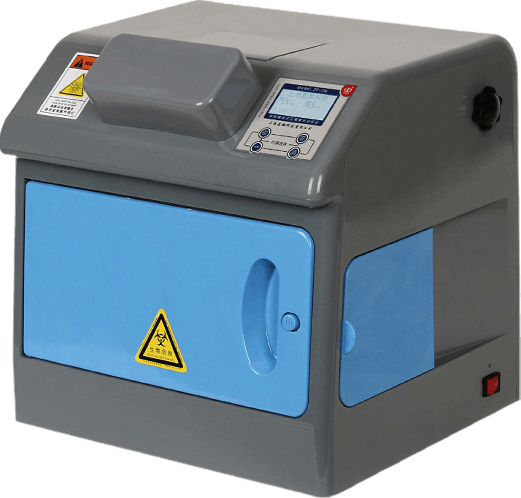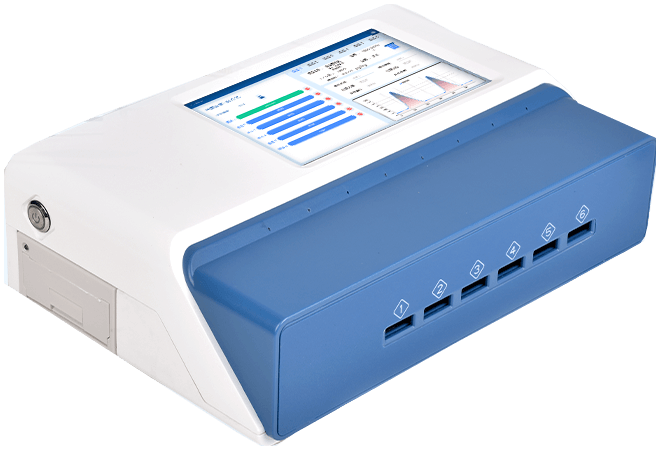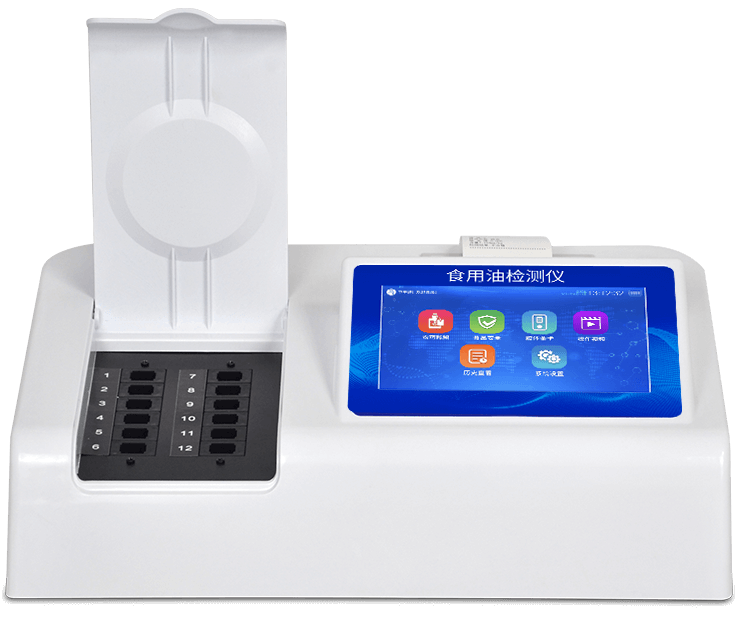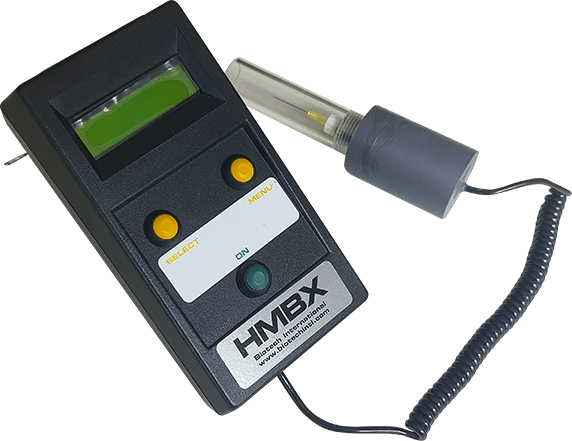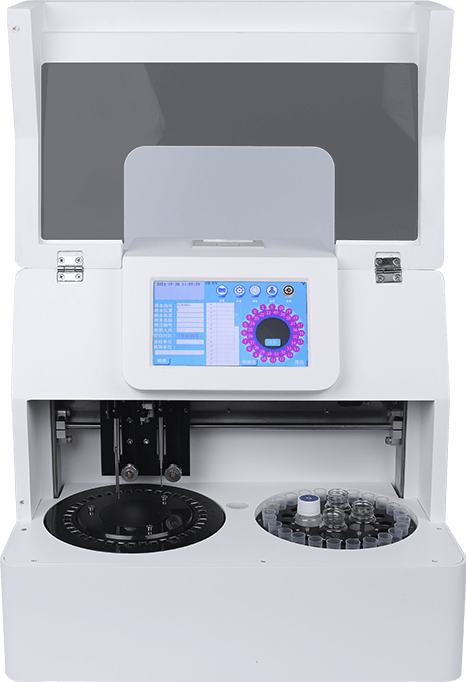
Fully automatic pesticide residue rapid detection instrument
- Product Number:LD-QN40
- Product Difference:40 channels, automatic cuvette cleaning, reusable, user-friendly interface, easy to operate
Product Introduction
The fully automatic pesticide residue rapid detection instrument is used for quantitative analysis of pesticide residue components in vegetable and fruit samples. The detection system primarily includes functional modules such as project parameters, reagent positioning, instrument calibration, settings, sample information, result inquiry, initialization, and full-system cleaning. It features moderate analysis speed, no cross-contamination, minimal consumables, and open reagent design.
It can be widely applied in quality supervision and inspection, health quarantine, environmental protection, industrial and commercial management, vegetable wholesale markets, vegetable production bases, supermarkets, shopping malls, and pesticide residue monitoring systems for pesticide residue testing in vegetables and fruits.
The fully automatic pesticide residue rapid detection instrument is developed based on the principles of enzyme inhibition and photometric colorimetry. Under certain conditions, organophosphorus and carbamate pesticides inhibit the normal function of cholinesterase, with the inhibition rate being directly proportional to the pesticide concentration. When the sample extract contains a certain amount of organophosphorus pesticides or carbamate pesticides, enzyme activity is inhibited, leading to increased absorbance. Based on this change rate, the pesticide residue content in the sample can be determined.
Product Features
User-friendly interface, easy to operate.
Automatic blank calibration.
Sample needle liquid level sensing to prevent cross-contamination.
Automatic cuvette cleaning, reusable.
Generate upload files to upload test results of selected samples to the specified storage location.
Integrate with local food and drug regulatory platforms for real-time data upload.
Software backend features internet-based backend expansion capabilities and large-screen display functionality, facilitating statistical monitoring by government agencies.
Product parameters
| Instrument Type | Stand-alone |
| Analysis Method | Enzyme Inhibition Method |
| Measurement Wavelength | 410 nm |
| Light Source | Monochromatic Cold Light Source |
| Sample positions | 40 positions; after samples are loaded, all subsequent processing is fully automated |
| Reaction positions | 40 reaction cups made of special materials; the machine automatically dispenses samples, reagents, etc., into the reaction cups |
| Reaction cup temperature | 37±0.1°C, the machine has temperature control functionality |
| Reaction cycle | 42 seconds per item |
| Reagent positions | 4 positions, compatible with reagent sizes from domestic brands, with automatic reagent addition |
| Reagent needle | Features liquid level detection and collision-proof safety protection functions |
| Software | Can be connected to a host computer for interconnection, the entire machine comes with a workstation (can be operated independently), and can be connected to a network for uploading |
| Printing | Multiple printing formats can be selected freely, built-in thermal printer |
| Power supply | AC 220V, 50Hz, 102W |
| Dimensions and weight | 428mm x 305mm x 380mm, approximately 13kg |


 +86 19353291814
+86 19353291814